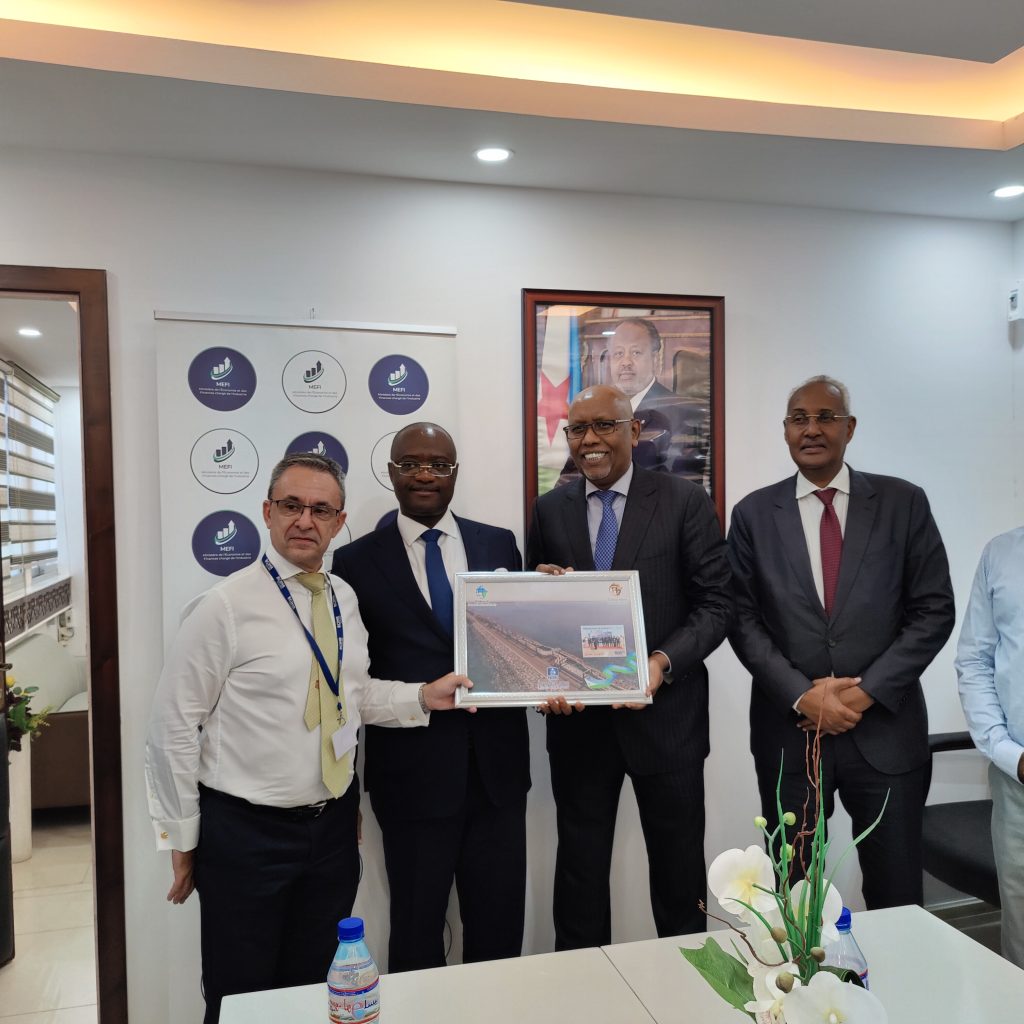The African Export-Import Bank (Afreximbank) in Nairobi has announced the provision of a financing facility worth $120 million to Djibouti’s Great Horn Investment Holding (GHIH). This funding will be used for a series of development projects within Djibouti’s Damerjog Industrial Development Free Trade Zone. The announcement of this deal took place during a meeting between Afreximbank President Prof. Benedict Oramah and Djibouti President Omar Guelleh, which occurred alongside the African Union Summit. The total funding for the free trade zone amounts to $155 million, with an additional $35 million being provided by Djibouti’s Banque pour le Commerce et l’Industrie Mer Rouge (BCIMR). The funds will be used to complete the construction of the Damerjog Oil Jetty, establish a 150,000m³ storage depot/oil tank farm, and cover other project-related expenses.
This agreement marks Afreximbank’s first collaboration with GHIH and the Djibouti government, with the aim of supporting the development of trade-related infrastructure. Djibouti seeks to become a regional hub for trans-shipment and logistics, and this funding will assist in achieving that goal. Additionally, the project will enhance intra-African trade by offering neighboring countries like Ethiopia and Somalia a gateway for ocean freight, as Djibouti’s economy primarily relies on providing marine services to these nations.
Another significant aspect of this financing facility is its support for SOMAGEC, a Moroccan construction company and Afreximbank’s Intra-African Trade Champion. Through the Intra-African Trade Champion program, Afreximbank aids African companies in executing infrastructure projects in other African countries, enabling them to compete globally with international players.
Commenting on the deal, Prof. Oramah said: “The crucial contribution of this landmark deal lies in its potential to deliver a boost to the development of the industrial capacity of Djibouti and its neighbors by assuring the implementation of critical trade enabling infrastructure to support bulk handling of liquid products. The establishment of a jetty and bulk port in the Djibouti Free Trade Zone will add significant value to Djibouti’s role as a trans-shipment hub for neighboring landlocked countries. Afreximbank is very proud to contribute to such a crucial project for Djibouti and the wider region.”
“We are equally proud that the project is being implemented by Moroccan EPC contractor SOMAGEC, a testimony to Afreximbank’s support to African contractors undertaking large infrastructure projects on the continent. Our intra-African trade agenda will continue to emphasize support to African contractors to enable them win and execute such major infrastructure projects across the continent” he added.
Afreximbank has been a key supporter of the engineering, procurement and construction (EPC) market in Africa with financing and facilitation interventions totaling $13 billion in the last 6 years. This includes financing of more than $7-billion worth of EPC-related transactions and issuance of trade instruments worth more than $6 billion to support and facilitate the award of contracts to African contractors.
Commenting on the transaction, GHIH’s Chairman Aboubaker Hadi Omar: “We are very proud of our collaboration with Afreximbank, a dynamic African multilateral and transaction driven institution, and the continuous valuable technical support of the EPC SOMAGEC. In line with our multi-year infrastructure investment strategy aiming to position our country as a logistical and commercial hub for the sub-region, we’re meeting this growing demand by delivering the infrastructure necessary, to support and enhance the economic and efficient movement of petroleum products in the region whilst developing a core economic belt with Ethiopia and ultimately an industrial base for East and Central Africa.”
Furthermore, it shows that our Head of State‘s vision “Djibouti 2035” is taking place thus transforming Djibouti as regional logistic hub,” he added.
GHIH, a state-owned investment holding vehicle of the Government of Djibouti, is responsible for logistics and transportation infrastructure. It holds interest in about 18 of the largest state-owned companies in the country, with a portfolio that includes companies in shipping, bunkering, management of free zones, storage, road transport and port security.

